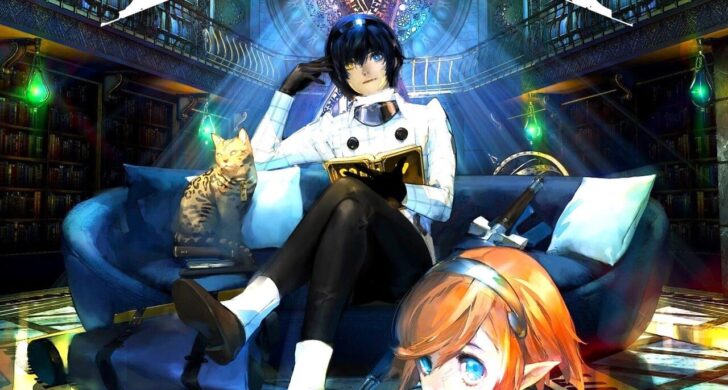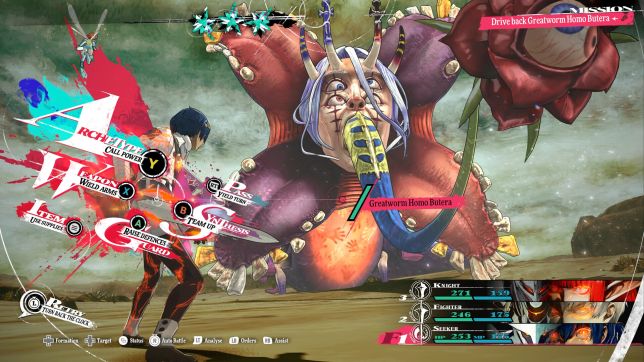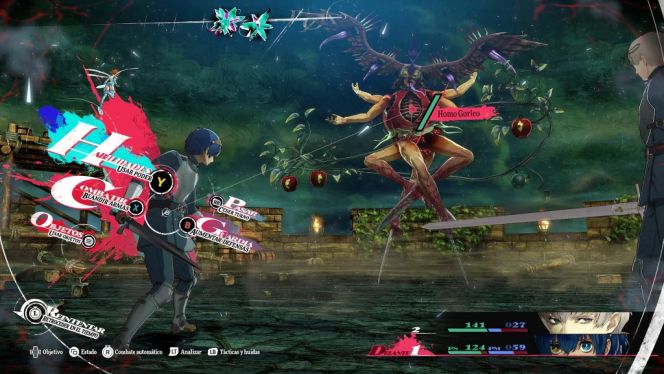REVIEW – From the creators of Persona 5 comes a fresh franchise that combines the familiar presentation and combat style of their previous works with an entirely new fantasy setting. This time, Atlus mixes steampunk with medieval aesthetics, offering a world filled with depth and intrigue, something rarely seen in JRPGs. While Metaphor: ReFantazio introduces plenty of new ideas, it retains enough familiar elements to make any Persona fan feel right at home. The game may have a slow, clunky start, but the deeper you dive into its combat and story, the more it pulls you in.
Before the release of Persona 3 in 2006, Western gamers were largely unaware of Atlus or its Shin Megami Tensei franchise. It was easy to imagine that both would remain niche in Japan, especially since Persona had been around since 1996. Fast forward to 2024, and Persona 5 has become one of the most beloved JRPGs of all time.
Although Persona 6 is likely on the horizon, after the recent release of Persona 3 Reload, Atlus has introduced an entirely new IP that has no direct connection to the Persona universe. Well, not quite… Metaphor takes place in a world plagued by deep-rooted racism and a bizarre political system where an election is anything but straightforward.
Despite these differences, Metaphor feels heavily inspired by the Persona series in both its gameplay and presentation, which can be both comforting and, at times, distracting. Still, for all its familiarities, this game stands as one of the most delightfully weird RPGs we’ve played in a long time.
What’s the Story of Metaphor: ReFantazio?
Set in a medieval fantasy world with no elves or dwarves in sight, Metaphor takes a unique approach by blending steampunk elements with a Victorian-inspired capital city. Forget your usual fantasy tropes—here, every race is humanoid, with subtle differences like horns or pointed ears. But don’t let those small differences fool you—racism is alive and well, with the main division between the ruling races and the “lesser” ones.
The protagonist (you choose their name, and unlike Persona, they’re fully voiced) belongs to a race that faces persecution for religious reasons, not physical traits, and they’re so rare that most people think they’ve gone extinct. Your companion, Gallica, is a fairy who’s also supposedly rare, but oddly enough, nobody seems to care much about her presence.
The two of you are on a mission to assassinate a nobleman who has cursed the realm’s prince into a coma. In a shocking twist, this villain kills the king in the opening scenes. Things get even crazier when the dead king floats his castle into the sky and declares an election to decide his successor. The candidates? A bland bureaucrat who represents continuity, the king’s obvious murderer, and… you.
It’s a bizarre setup, and the first five hours don’t exactly grab you, especially with the heavy-handed social commentary. But what keeps you hooked is the combat system and the grotesque designs of your human enemies, which look like something straight out of a Hieronymus Bosch nightmare.
How Does Metaphor: ReFantazio Stack Up to Persona?
From the very beginning, there’s a sense that Metaphor is connected to an idealized version of our world. The protagonist carries around a fantasy book that describes a place filled with skyscrapers, no magic, and no war. It’s a strange twist, but the book’s author, who appears in your dreams, fills the same role as Igor from Persona, explaining your powers and guiding you through new abilities.
A key feature of the game is the Archetype system, which is somewhat similar to Persona‘s “personas.” In battle, you transform into these Archetypes to cast spells and use abilities. But unlike Persona, they function as class types. While each character starts with a specific Archetype, you can unlock others, but this requires a hefty amount of in-game magical currency. And every character starts at level one with each Archetype, so a bit of specialization is needed as you progress and unlock new classes.
While Metaphor‘s turn-based combat will feel familiar to Persona fans, it’s faster and more streamlined, almost giving the feel of an action game. Lesser enemies can be dispatched in real-time, leaving the tougher fights to be tackled with strategy. Everything runs smoothly until you meet the first boss, who will absolutely crush you if you try to brute-force your way through.
Think Fast or Die: Boss Battles Will Push You to the Limit
Strategy is key in Metaphor. Learning enemy patterns and weaknesses, positioning your characters, and shuffling them between rows is critical to turning what feels like an impossible fight into an easy victory. Combine that with powerful combo attacks, and the combat system really shines. Even though Persona 5 seemed to have perfected turn-based combat, Metaphor proves that it didn’t need to reinvent the wheel to feel fresh.
The game’s structure also borrows from Persona. While there’s no school year to manage, the election follows a strict timeline, and each day and night must be carefully planned. You’ll need to balance story missions, side quests, and building relationships with your allies, which improves their performance in battle. It’s very much like Persona‘s social links, minus the romance.
Side quests not only grant material rewards but also boost one of your five “Royal Virtues”: Courage, Wisdom, Tolerance, Eloquence, and Imagination. These are vital for everything from winning the election to negotiating with shopkeepers, making side quests essential for progressing in the game.
Visually, the game’s menus and user interface are just as sleek as Persona, even if the modern designs seem slightly out of place in Metaphor‘s quasi-medieval world. Unfortunately, the in-game graphics are where the game stumbles. There’s been no real improvement over Persona 5 or Persona 3 Reload, and it’s clear that this is a cross-gen PlayStation 4 title.
Should You Play Metaphor: ReFantazio?
At first glance, Metaphor: ReFantazio might seem like a step back for Atlus, but once you dive in, it’s clear that’s not the case. While many modern JRPGs have abandoned their roots to appeal to a broader audience, Metaphor manages to stay true to its classic inspirations while pushing the genre forward.
Although the opening hours may not be very compelling, Metaphor is one of those rare games that gets better and better the longer you play. What starts as clumsy social commentary eventually becomes more nuanced, and while the game avoids drawing direct parallels to current events, its broader themes hit harder than you’d expect.
We initially feared that the game, like many Western titles, would be too timid to offer any meaningful social commentary, but its title isn’t as meaningless as it first seems. By the end, Metaphor delivers an unexpectedly uplifting message, emphasizing the importance of fantasy and aspiration in an imperfect world, and how they can inspire positive change.
And if all of that wasn’t enough, you’ll get to fight a giant duck with a human face while transforming into a massive mecha-knight—enough to give any Dark Souls boss nightmares. While the similarities to Persona may initially feel like a letdown, if it helps to draw fans into something new, it’s worth it. In the end, Metaphor is every bit as good as Persona—a true standout in the world of modern JRPGs.
-Gergely Herpai „BadSector-
Pros:
+ Despite the wild twists and turns of the story, it has serious depth and meaning.
+ Excellent turn-based combat system and fantastic boss fights in both senses.
+ Tons of content and really meaningful side quests.
Cons:
– The first five hours are very bumpy.
– The graphics are at least a generation behind.
– Only partially synchronized dialogues.
Publisher: Sega
Developer: Atlus
Style: JRPG
Release: October 11, 2024.
Metaphor: ReFantazio
Gameplay - 9.2
Graphics - 7.4
Story - 7.6
Music/Sound - 8.2
Ambience - 8.1
8.1
EXCELLENT
Metaphor: ReFantazio takes players to a one-of-a-kind fantasy world, with Persona-inspired combat and mechanics. While the graphics are a bit dated, the game’s unique story and battle systems make it a must-play for any fan of the genre.


















